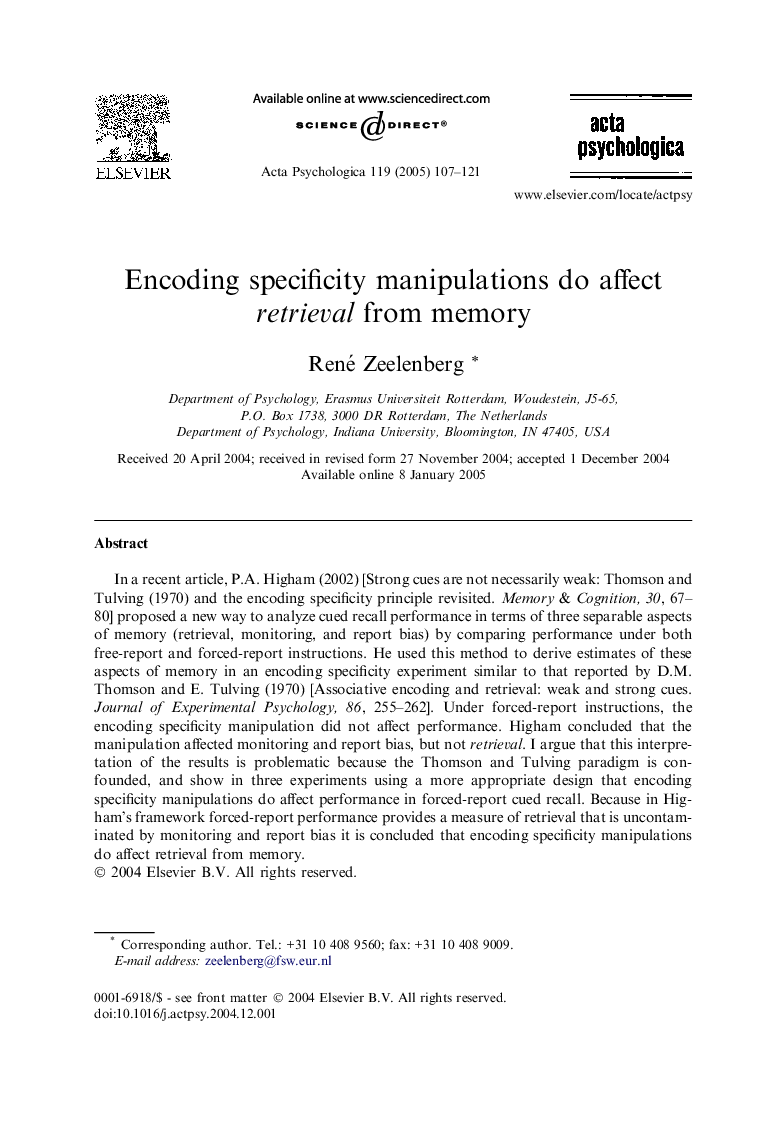| Article ID | Journal | Published Year | Pages | File Type |
|---|---|---|---|---|
| 10453902 | Acta Psychologica | 2005 | 15 Pages |
Abstract
In a recent article, P.A. Higham (2002) [Strong cues are not necessarily weak: Thomson and Tulving (1970) and the encoding specificity principle revisited. Memory &Cognition, 30, 67-80] proposed a new way to analyze cued recall performance in terms of three separable aspects of memory (retrieval, monitoring, and report bias) by comparing performance under both free-report and forced-report instructions. He used this method to derive estimates of these aspects of memory in an encoding specificity experiment similar to that reported by D.M. Thomson and E. Tulving (1970) [Associative encoding and retrieval: weak and strong cues. Journal of Experimental Psychology, 86, 255-262]. Under forced-report instructions, the encoding specificity manipulation did not affect performance. Higham concluded that the manipulation affected monitoring and report bias, but not retrieval. I argue that this interpretation of the results is problematic because the Thomson and Tulving paradigm is confounded, and show in three experiments using a more appropriate design that encoding specificity manipulations do affect performance in forced-report cued recall. Because in Higham's framework forced-report performance provides a measure of retrieval that is uncontaminated by monitoring and report bias it is concluded that encoding specificity manipulations do affect retrieval from memory.
Related Topics
Life Sciences
Neuroscience
Cognitive Neuroscience
Authors
René Zeelenberg,
